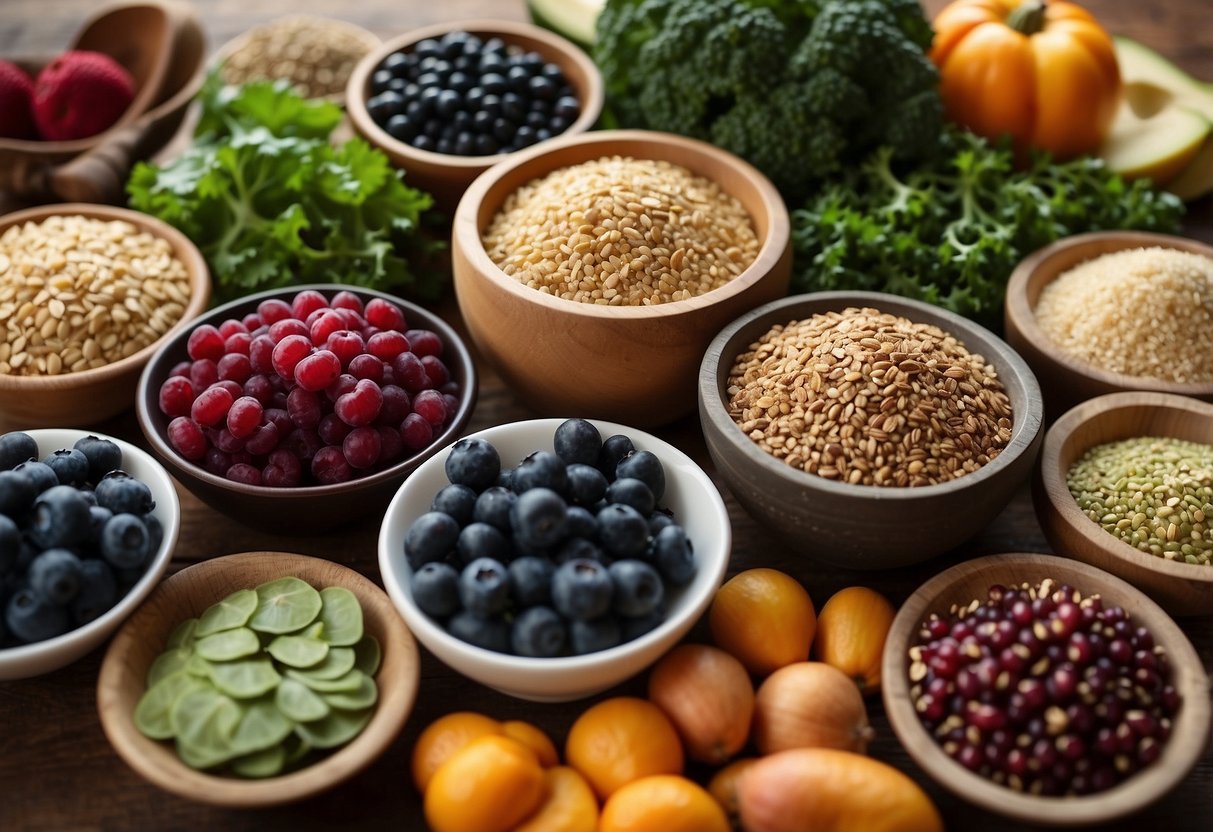
In the quest for a healthier lifestyle, many individuals are turning to superfoods. These nutrient-rich foods are celebrated for their potential benefits to overall well-being. Incorporating superfoods into your daily diet can enhance nutrition and help support long-term health.
Many well-known superfoods provide a range of vitamins, minerals, and antioxidants that contribute to various aspects of health. Exploring the best options to include in your meals can be a rewarding step toward a healthier diet.
1) Chia seeds
Chia seeds are small, black or white seeds derived from the Salvia hispanica plant. They are renowned for their impressive nutrient profile, which includes high levels of fiber, protein, omega-3 fatty acids, and various micronutrients.
A single ounce (about 28 grams) of chia seeds contains nearly 11 grams of fiber, making them an excellent addition to anyone’s daily diet for digestive health. The fiber also helps to keep you feeling full, which can aid in weight management.
Chia seeds are versatile and can be easily incorporated into meals. They work well in smoothies, yogurt, pudding, and even baked goods. When mixed with liquid, they form a gel-like consistency, which is ideal for creating healthy, texture-rich recipes.
These seeds are also rich in antioxidants, which help to combat oxidative stress and inflammation in the body. This can contribute to better overall health and a reduced risk of chronic diseases.
High in omega-3 fatty acids, chia seeds support heart health by helping to lower levels of bad cholesterol and keeping blood pressure in check. These essential fats are crucial for brain health as well.
Chia seeds are relatively easy to find and store, making them a convenient option for upgrading your nutrition. They have a long shelf life and do not require refrigeration, so they can be kept in the pantry for months.
2) Blueberries
Blueberries, small but mighty, are packed with nutrients and antioxidants. These tiny fruits are often hailed for their high levels of vitamin C, vitamin K, and fiber. Eating a handful of blueberries can contribute to heart health, improved brain function, and better digestion.
Notably, blueberries contain powerful antioxidants called anthocyanins. These compounds are responsible for the fruit’s vibrant blue color and have been linked to various health benefits. Anthocyanins may help protect the body against free radicals and reduce inflammation.
Blueberries are also known for their potential cognitive benefits. Some studies suggest that regular consumption of blueberries can improve memory and delay age-related cognitive decline. This makes them an excellent addition to the diet for those looking to support brain health.
Moreover, blueberries have a low glycemic index. This means they release sugar into the bloodstream slowly, which can help regulate blood sugar levels. This characteristic makes blueberries a suitable fruit option for people with diabetes or those watching their sugar intake.
Incorporating blueberries into the daily diet is easy. They can be enjoyed fresh, frozen, or dried and added to smoothies, cereals, salads, or yogurt. Blueberries also make a nutritious snack on their own, providing a sweet and healthy alternative to sugary treats.



